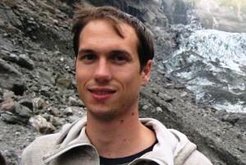Agouron fellowship supports paleobiogeochemistry research

In the independent research group “Organic Paleobiogeochemistry” of Christian Hallmann, located in Bremen, postdoctoral researcher Bruisten will analyse lipids of recent radiolaria, small protozoa found as zooplankton throughout the oceans. Radiolaria produce intricate mineral skeletons, and their first appearance on Earth dates back to the start of the Cambrian period. Can lipids from modern radiolaria be found in sediments including ancient fossil material? If so, this would strongly enhance our knowledge about the lipid composition of first primitive eukaryotes, but also about early diversification steps of theses marine algae.
